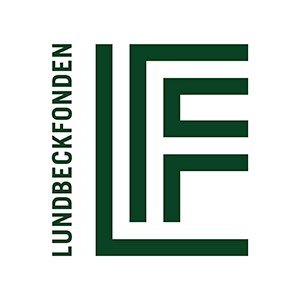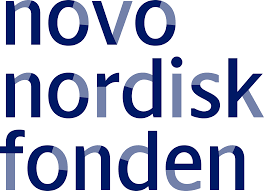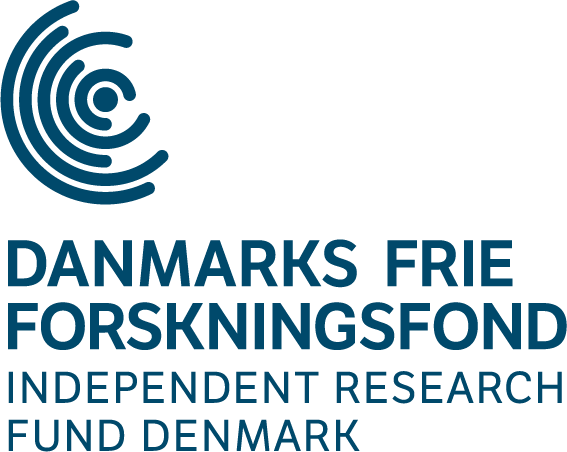Research focus
Our research activities are focused on disease modeling using induced pluripotent stem cells (iPSC) from patients and their CRISPR-Cas9 gene edited controls. We have a specific disease-oriented focus on Alzheimer’s disease (AD) Frontotemporal dementia (FTD), Glaucoma, Epilepsy and Schizophrenia.
Within these diseases we are investigating cell type specific pathologies in neurons, astrocytes and microglia. We are conducting those studies in 2D and in 3D organoid structure. We are especially keen on understanding overlapping dysfunctions amongst different types of dementia and identification of key players in disease pathways. We believe that comprehensive understanding of such molecular commonalities may provide opportunities for novel interventions that are beneficial for an array of related diseases facilitating cost effective drug development. Furthermore, our lab is working in early embryology and epigenetic alterations leading to developmental abnormalities and infertility.
Current projects
Our main research focus is on Alzheimer’s disease (AD). Recently, we are focusing more on idiopathic AD where we are investigating the role of RhoA and genetic risk single nucleotide polymorphisms in iPSC derived neurons, astrocytes, and microglia (“RhoAD” funded by the Novo Nordisk Foundation). Additionally, we are investigating posttranslational modifications (PTM), miRNAs and early changes in synaptic pruning in cerebral organoids derived from both familial AD patient iPSC and their isogenic controls as well as idiopathic AD patient iPSC (“Developnoid” funded by the Lundbeck Foundation). This project is a collaborative grant with partners at the University of Copenhagen (Martin Røssel-Larsen) and at Cambridge University (Madeline Lancaster).
Within the Developnoid collaborative consortium, we are, furthermore, establishing iPSC from epilepsy patients and will perform PTM and miRNA analyses on cerebral organoids to map affected biological pathways, which can be pharmacologically targeted to interfere into the disease pathology.
Funded by the Velux Foundation and Øjenforeningen, we are investigating the role of mitochondria in development and progression of Glaucoma implementing iPSC derived retinal organoids. Here we are interested in two main questions. 1) Can patient fibroblasts be surrogate measures for Glaucoma prediction and 2) How do mitochondria deficits arise and can we identify pharmacological intervention strategies. This project is in close collaboration with Miriam Kolko (Rigshospital and Dep of Pharmacology and Drug Design, UCPH).
Funded by the Danish Research Council, we are participating in a project led by Jan Gorodkin, UCPH investigating epigenetic implications in human iPSC and their impact on CRISPR-Cas9 on and off target efficiency.
Additionally, we are investigating the consequences and treatment options in rare childhood epilepsies in collaboration with Rikke Møller at the Danish epilepsy center and Jakob Balslev Sørensen. Within this project we have generated via CRISPR-Cas9 precision gene editing loss and gain of function mutations in disease relevant genes (funded by the Lundbeck Foundation & “PREMED” Novo Nordisk Foundation).
Finally, we are working with the generation of animal iPSC, and we have successfully generated porcine iPSC and canine iPSC-like cells. The canine iPSC work has been focused on establishing dogs with canine cognitive dysfunction (CCD) as natural models for human AD (funded by the Danish Research Council). The porcine iPSCs have been implemented in studies to generate non-immunogenic iPSC (collaboration with LifePharm and the Novo Nordisk Stem Cell Department). We are currently embarking on the generation of capuchin monkey iPSC to include into our comparative neurodevelopmental studies in schizophrenia and epilepsy, but also to study brain evolutionary aspects (collaboration with Fabianna Bressan, University São Paulo).
The EggSphere project is a FP1 project funded by the Danish Council for Independent Research/Natural Sciences, and it investigates the function of the oocyte’s nucleolus in embryonic development. The pig, in which the egg’s morphology and biology resembles its human counterpart, will be used to study the content of the nucleolus as well as the developmental competence conveyed by this structure.
"SukkerSo - Sukker til søer for mere ensartede kuld" is funded by the Danish Svineafgiftsfond and run by Assistant Professor Merle Fenner.
- Stoklund Dittlau, K, Terrie, L, Baatsen, P, Kerstens, A, De Swert, L, Janky, R, Corthout, N, Masrori, P, Van Damme, P, Hyttel, P, Meyer, M, Thorrez, L, Freude, K. & Van Den Bosch, L. FUS-ALS hiPSC-derived astrocytes impair human motor units through both gain-of-toxicity and loss-of-support mechanisms. Molecular Neurodegeneration. 2023. DOI: https://doi.org/10.1186/s13024-022-00591-3
- Corsi, G, Gadekar, V, Haukedal, H, Doncheva, N, Anthon, C, Ambardar, S, Palakodeti, D, Hyttel, P, Freude, K, Seemann, S & Gorodkin, J. The transcriptomic landscape of neurons carrying PSEN1 mutations reveals changes in extracellular matrix components and non-coding gene expression. Neurobiology of Disease. 2023. DOI: https://doi.org/10.1016/j.nbd.2022.105980
- Chandrasekaran, A, Dittlau, K, Corsi, G, Haukedal, H, Doncheva, N, Ramakrishna, S, Ambardar, S, Salcedo, C, Schmidt, SI, Zhang, Y, Cirera, S, Pihl, M, Schmid, B, Nielsen, T, Nielsen, J, Kolko, M, Kobolak, J, Dinnyes, A, Hyttel, P, Palakodeti, D, Gorodkin, J, Muddashetty, R, Meyer, M, Aldana B, Freude K. 2021. Astrocytic reactivity triggered by defective autophagy and metabolic failure activates NF-kB signaling and causes neurotoxicity in frontotemporal dementia type 3. Stem Cell Reports. 2021. DOI: https://pubmed.ncbi.nlm.nih.gov/34678206/
- Andersen, JV, Skotte, NH, Christensen, SK, Polli, FS, Shabani, M, Markussen, KH, Haukedal, H, Westi, EW, Diaz-delCastillo, M, Sun, RC, Kohlmeier, KA, Schousboe, A, Gentry, MS, Tanila, H, Freude, K, Aldana, BI, Mann, M & Waagepetersen, HS, Hippocampal disruptions of synaptic and astrocyte metabolism are primary events of early amyloid pathology in the 5xFAD mouse model of Alzheimer's disease, Cell Death & Disease. 2021. DOI: https://doi.org/10.1038/s41419-021-04237-y
- Ramakrishna S, Jhaveri V, Konings S, Chakraborty S, Holst B, Schmid B, Freude K, Gouras G, Muddashetty R. APOE4 affects basal and NMDAR mediated protein synthesis in neurons by perturbing calcium homeostasis. Journal of Neuroscience. 2021. DOI: https://doi.org/10.1523/JNEUROSCI.0435-21.2021
- Chandrasekaran A, Jensen P, Mohamed F, Lancaster M, Benros M, Larsen M, Freude K. A protein-centric view of in vitro biological model systems for Schizophrenia. Stem Cells. 2021. https://doi.org/10.1002/stem.3447.
- Byman, E, Martinsson, I, Haukedal, H, Netherlands Brain, B, Gouras, G, Freude, K, & Wennstrom, M. Neuronal alpha-amylase is important for neuronal activity and glycogenolysis and reduces in presence of amyloid beta pathology. Aging Cell. 2021. DOI: https://doi.org/10.1111/acel.13433
- Schmidt SI, Bogetofte H, Ritter L, Agergaard JB, Hammerich D, Kabiljagic AA, Wlodarczyk A, Lopez SG, Sørensen MD, Jørgensen ML, Okarmus J, Serrano AM, Kristensen BW, Freude K, Owens T, Meyer M. Microglia-Secreted Factors Enhance Dopaminergic Differentiation of Tissue- and iPSC-Derived Human Neural Stem Cells. Stem Cell Reports. 2021. DOI: https://doi.org/10.1016/j.stemcr.2020.12.011
- Frederiksen HR, Doehn U, Tveden-Nyborg P, Freude K. Non-immunogenic Induced Pluripotent Stem Cells, a Promising Way Forward for Allogenic Transplantations for Neurological Disorders. Frontiers in Genome Editing. 2020. DOI: https://doi.org/10.3389/fgeed.2020.623717
- Aldana BI, Zhang Y, Jensen P, Chandrasekaran A, Christensen SK, Nielsen TT, Nielsen JE, Hyttel P, Larsen MR, Waagepetersen HS, Freude K. Glutamate-glutamine homeostasis is perturbed in neurons and astrocytes derived from patient iPSC models of frontotemporal dementia. Mol Brain. 2020. DOI: https://doi.org/10.1186/s13041-020-00658-6
- Haukedal H, Freude K. Implications of Microglia in Amyotrophic Lateral Sclerosis and Frontotemporal Dementia. J Mol Biol. 2019.DOI: https://doi.org/10.1016/j.jmb.2019.02.004
- Vohra R, Aldana BI, Skytt DM, Freude K, Waagepetersen H, Bergersen LH, Kolko M. (2018). Essential Roles of Lactate in Muller Cell Survival and Function. Mol Neurobiol. 2018. DOI: https://doi.org/10.1007/s12035-018-1056-2
- Ochalek A, Mihalik B, Avci HX, Chandrasekaran A, Teglasi A, Bock I, Giudice ML, Tancos Z, Molnar K, Laszlo L, Nielsen JE, Holst B, Freude K, Hyttel P, Kobolak J, Dinnyes A. Neurons derived from sporadic Alzheimer's disease iPSCs reveal elevated TAU hyperphosphorylation, increased amyloid levels, and GSK3B activation. Alzheimers Res Ther. 2017. DOI: https://doi.org/10.1186/s13195-017-0317-z
- Zhang, Y, Schmid, B, Nikolaisen, NK, Rasmussen, MA, Aldana, BI, Agger, M, Calloe, K, Stummann, TC, Larsen, HM, Nielsen, TT, Huang, J, Xu, F, Liu, X, Bolund, L, Meyer, M, Bak, LK, Waagepetersen, HS, Luo, Y, Nielsen, JE, Consortium, FR, Holst, B, Clausen, C, Hyttel, P, Freude, K. Patient iPSC-Derived Neurons for Disease Modeling of Frontotemporal Dementia with Mutation in CHMP2B. Stem Cell Reports . 2017. DOI: https://doi.org/10.1016/j.stemcr.2017.01.012
- Freude, K., Penjwini, M., Davis, J.L., LaFerla, F.M., Blurton-Jones, M., Soluble amyloid precursor protein induces rapid neural differentiation of human embryonic stem cells. J Biol Chem . 2011. DOI: https://doi.org/10.1074/jbc.M111.227421
- Kalscheuer, VM, Freude, K, Musante, L, Jensen, LR, Yntema, HG, Gecz, J, Sefiani, A, Hoffmann, K, Moser, B, Haas, S, Gurok, U, Haesler, S, Aranda, B, Nshedjan, A, Tzschach, A, Hartmann, N, Roloff, TC, Shoichet, S, Hagens, O, Tao, J, Van Bokhoven, H, Turner, G, Chelly, J, Moraine, C, Fryns, JP, Nuber, U, Hoeltzenbein, M, Scharff, C, Scherthan, H, Lenzner, S, Hamel, BC, Schweiger, S, Ropers, HH. Mutations in the polyglutamine binding protein 1 gene cause X-linked mental retardation. Nat Genet. 2003. DOI: https://doi.org/10.1038/ng1264
Click on the name below to see a complete overview of the senior group members' publications:
Research Funding
 |
 |
 |
 |
Group Leader
Professor Kristine Freude, PhD
Grønnegårdsvej 7
DK-1870 Frederiksberg C
Phone: +45 25572261
Group members
|
Name |
Position |
| Afonso, Inês Rodrigues | Master student |
| Aldana, Blanca Irene | Associate Professor |
| Andersen, Sofie Amalie Flintholm | PhD student |
| Bessa, Rita Goncalves | PhD NAD |
| Fenner, Merle | Assistant Professor |
| Frederiksen, Henriette | Postdoc |
| Glahder, Trine Marie Ahlman | TAP |
| Hald, Jonas Laugård | PhD (NAD) |
| Jensen, Betina Wingreen | Project Manager |
| Jensen, Rikke Rejnholdt | Visiting PhD student |
| Jensen, Lars Jørn | Associate Professor |
| Kadlecova, Marion | PhD |
| Langeder, Angelika Birgit | PhD NAD |
| Mohamed, Fadumo | PhD |
| Oskarsson, Chichi N. | TAP |
| Rasmussen, Laura | visiting PhD studen from SDU |
| Tao, Ruixin | PhD |
| von Spreckelsen, Alexander | PhD |
| Wathikthinnakon, Methi | Postdoc |
